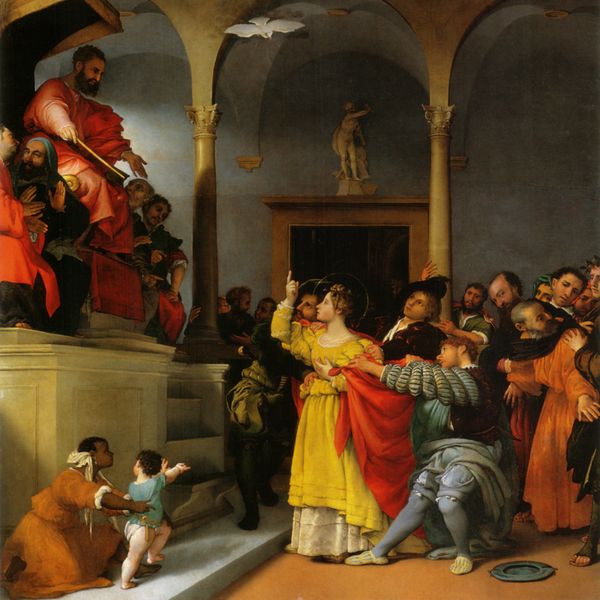Lucia of Syracuse (283–304), also called Saint Lucia (Latin: Sancta Lucia) better known as Saint Lucy, was a Roman Christian martyr who died during the Diocletianic Persecution. She is venerated as a saint in the Catholic, Anglican, Lutheran, and Eastern Orthodox churches. She is one of eight women (including the Virgin Mary) explicitly commemorated by Catholics in the Canon of the Mass. Her traditional feast day, known in Europe as Saint Lucy's Day, is observed by Western Christians on 13 December. Lucia of Syracuse was honored in the Middle Ages and remained a well-known saint in early modern England. She is one of the best known virgin martyrs, along with Agatha of Sicily, Agnes of Rome, Cecilia of Rome and Catherine of Alexandria.
Virgin and Martyr
Lucy was born to rich and noble parents in the year 283 AD. Her father was of Roman origin, but died when she was five years old, leaving Lucy and her mother without a protective guardian. Her mother's name Eutychia seems to indicate that she came from a Greek background.
Like many of the early martyrs, Lucy had consecrated her virginity to God, and she hoped to distribute her dowry to the poor. However, Eutychia, not knowing of Lucy's promise, and suffering from a bleeding disorder, feared for Lucy's future. She arranged Lucy's marriage to a young man of a wealthy pagan family.
St. Agatha came to Lucy in a dream and told her that because of her faith, her mother would be cured and that Lucy would be the glory of Syracuse, as she was of Catania. With her mother cured, Lucy took the opportunity to persuade her mother to allow her to distribute a great part of her riches among the poor.
Eutychia suggested that the sums would make a good bequest, but Lucy countered, "...whatever you give away at death for the Lord's sake you give because you cannot take it with you. Give now to the true Savior, while you are healthy, whatever you intended to give away at your death."
News that the patrimony and jewels were being distributed came to Lucy's betrothed, who denounced her to Paschasius, the Governor of Syracuse. Paschasius ordered her to burn a sacrifice to the emperor's image. When she refused, Paschasius sentenced her to be defiled in a brothel.
The Christian tradition states that when the guards came to take her away, they could not move her even when they hitched her to a team of oxen. Bundles of wood were then heaped about her and set on fire, but would not burn. Finally, she met her death by the sword thrust into her throat.
